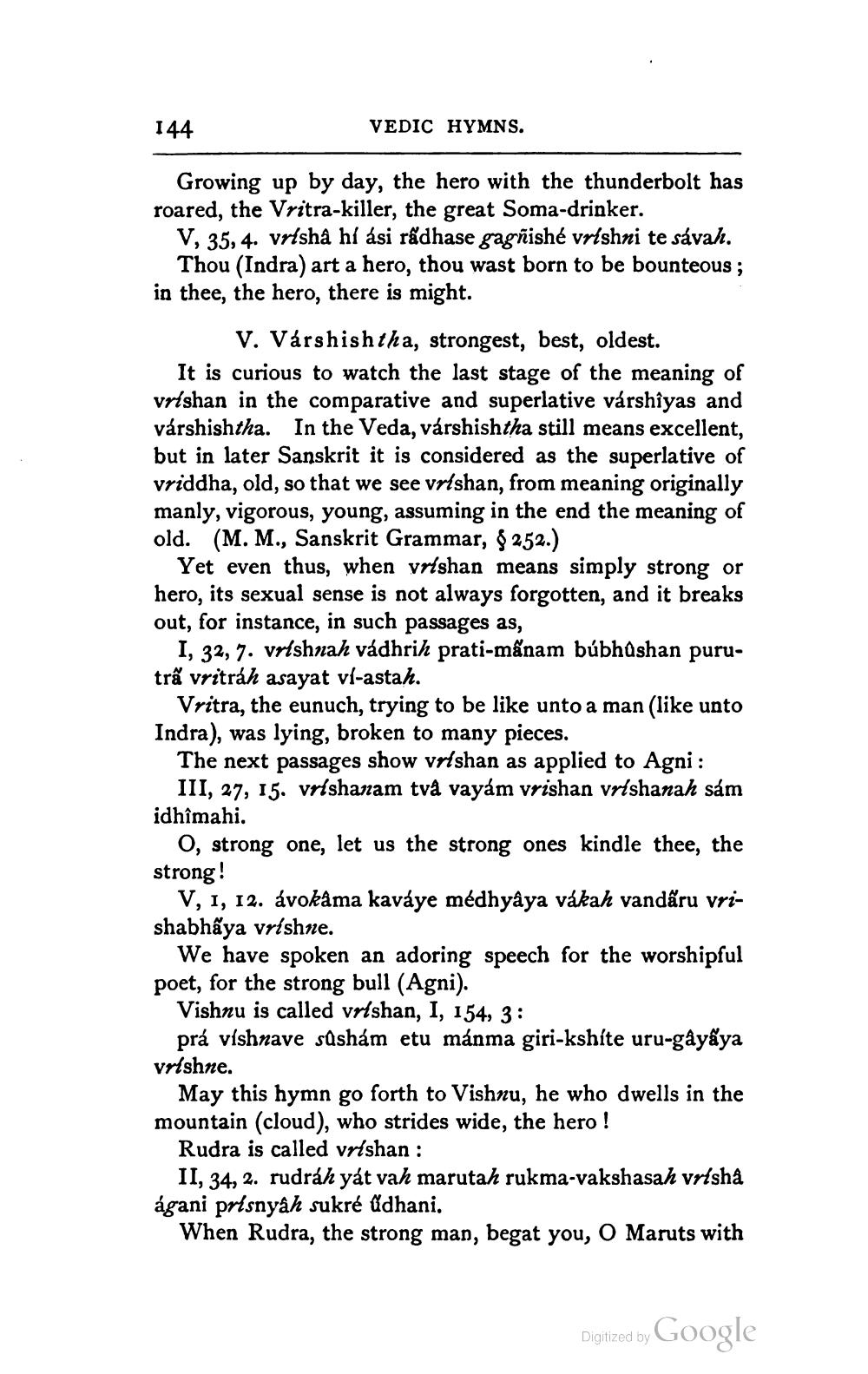________________
144
VEDIC HYMNS.
Growing up by day, the hero with the thunderbolt has roared, the Vritra-killer, the great Soma-drinker.
V, 35, 4. vrlsha hí ási rådhase gagñishé vrishni te sávah.
Thou (Indra) art a hero, thou wast born to be bounteous ; in thee, the hero, there is might.
V. Várshishtha, strongest, best, oldest. It is curious to watch the last stage of the meaning of vrlshan in the comparative and superlative várshîyas and varshishtha. In the Veda, várshishtha still means excellent, but in later Sanskrit it is considered as the superlative of vriddha, old, so that we see vrlshan, from meaning originally manly, vigorous, young, assuming in the end the meaning of old. (M. M., Sanskrit Grammar, $ 252.)
Yet even thus, when vrishan means simply strong or hero, its sexual sense is not always forgotten, and it breaks out, for instance, in such passages as,
I, 32, 7. vrlshnah vádhrih prati-mấnam búbhushan purutră vritrah asayat ví-astah.
Vritra, the eunuch, trying to be like unto a man (like unto Indra), was lying, broken to many pieces.
The next passages show vrlshan as applied to Agni :
III, 27, 15. vrlshanam två vayám vrishan vrlshanah sám idhîmahi.
O, strong one, let us the strong ones kindle thee, the strong!
V, 1, 12. ávokāma kaváye médhyâya vákah vandấru vrishabhấya vrishne.
We have spoken an adoring speech for the worshipful poet, for the strong bull (Agni).
Vishnu is called vrlshan, I, 154, 3:
prá vishnave súshám etu mánma giri-kshite uru-gâyâya vrlshne.
May this hymn go forth to Vishnu, he who dwells in the mountain (cloud), who strides wide, the hero !
Rudra is called vrlshan :
II, 34, 2. rudrah yát vah marutah rukma-vakshasah vrlshå ágani prisnyâh sukré Odhani.
When Rudra, the strong man, begat you, O Maruts with
Digitized by
Digitized by Google




